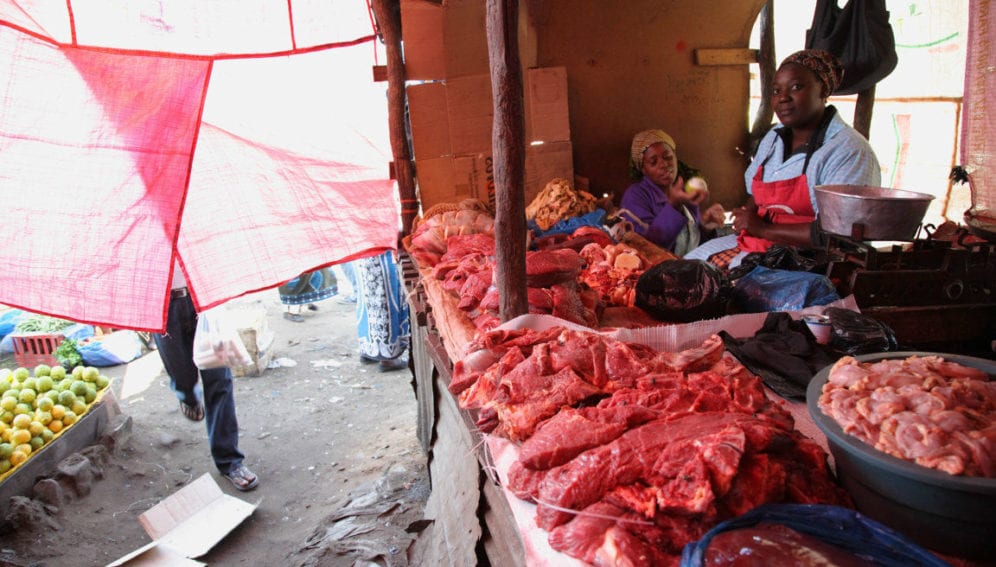By: Gilbert Nakweya
Send to a friend
The details you provide on this page will not be used to send unsolicited email, and will not be sold to a 3rd party. See privacy policy.
[NAIROBI] African countries should pay more attention to food safety issues in informal markets where animal products are prepared and sold to help improve human health and generate more income, a new book says.
The book, Food safety and informal markets: animal products in Sub-Saharan Africa, which was launched at the International Livestock Research Institute (ILRI) campus in Kenya last month (27 January), shows that informal markets supply 85 to 95 per cent of food products from livestock consumed in Africa.
“Food safety matters a lot to poor consumers and even to decision-makers.”
Kristina Roesel, ILRI
The book has 25 case studies resulting from ILRI’s Safe Food, Fair Food project, which commenced in 2011 in eight African countries — Cote d’Ivoire, Ethiopia, Ghana, Kenya, Mali, Mozambique, South Africa and Tanzania.
Jimmy Smith, ILRI director-general, commended the book, saying that food safety is critical for humans. “We have to eat to live and what we eat must be safe for us to be productive,” Smith said.
ILRI researchers warn that failure to deal with food safety in informal markets for livestock products, an important source of food in Africa, could lead to massive losses.
Kristina Roesel, a co-editor of the book and the Safe Food, Fair Food project coordinator, says the case studies involved a participatory risk assessment approach, with a focus on the needs of consumers. “Food safety matters a lot to poor consumers and even to decision-makers,” Roesel noted.
Roesel says informal markets are important for Africa’s transformation and should not be neglected. “Informal markets are used by many people because they are physically accessible, sell food on credit, the products are cheaper and can be purchased in smaller amounts than in supermarkets,” Roesel explains.
Erastus Kang’ethe, a professor in the department of public health, pharmacology and toxicology at Kenya’s University of Nairobi, says: “The informal markets contribute up to 40 per cent of GDP [gross domestic product] in Kenya and serve approximately 90 per cent of our population.”
Kang’ethe adds that if issues such as poor hygiene in informal markets are not addressed, the country’s health problems could increase.
According to the book, most poor Africans are smallholder farmers, and are rarely given the opportunity to sell their products in Western-style supermarkets, prompting them to go for ‘wet markets’ and stalls as selling points.
Roesel says interventions such as a clean environment, and the provision of clean water should be scaled up to improve informal markets.
Kang’ethe calls for the formulation of policies to guide the informal sector in Africa and how it can be involved in development. He urges African governments to invest more in the informal sector for higher returns.
Daniel Njuguna, a veterinary specialist at the University of Nairobi, observes that the case studies discuss animal products as an important source of food in Africa.
People in informal markets should be sensitised on simple hygienic practices such as keeping their environment clean and boiling milk before drinking it, Njuguna says.
This article has been produced by SciDev.Net's Sub-Saharan Africa desk.














